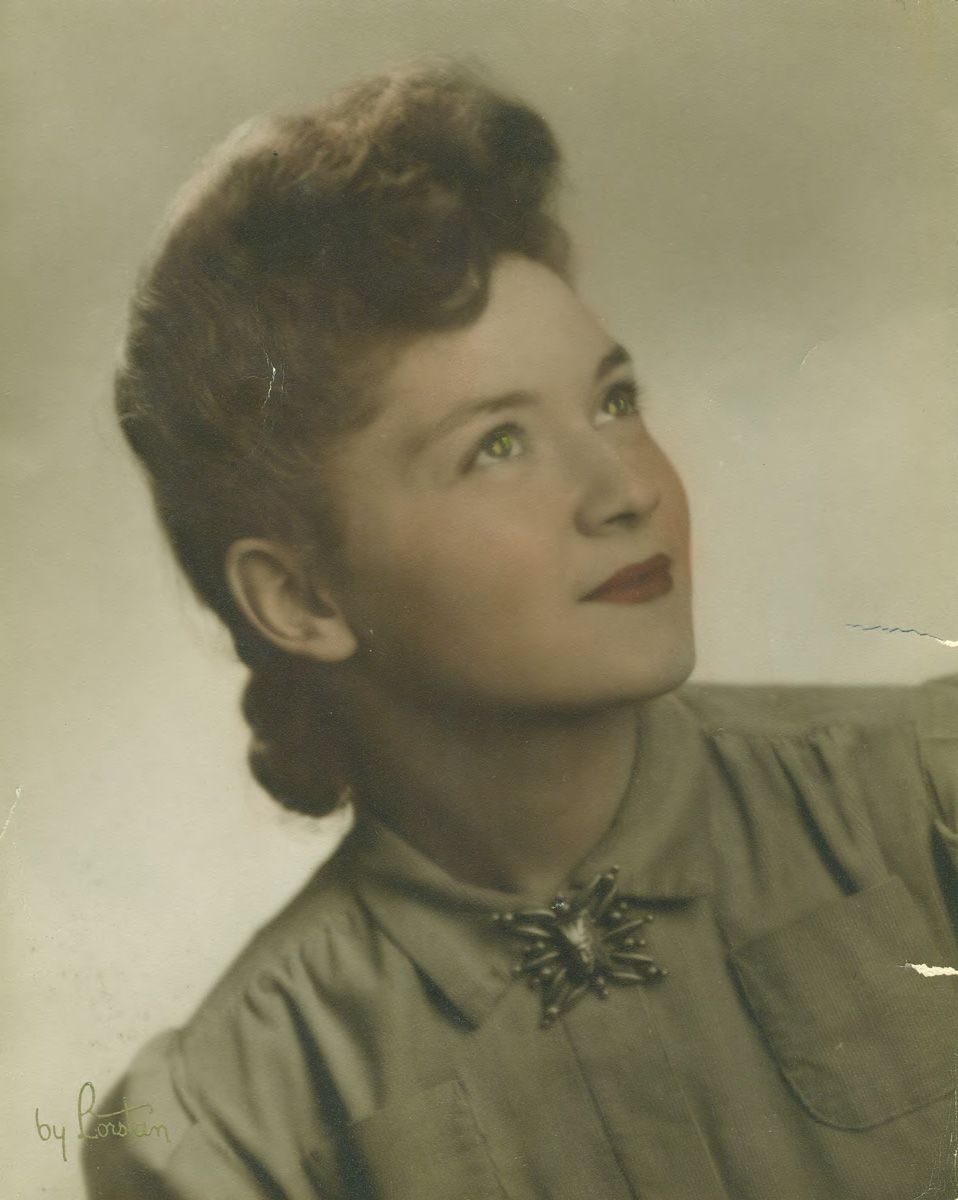I am dreaming. Dreaming of my body aging: I’m with a group of young women; I ask them to speak up so I can hear. I’m with an old man, hair dyed garish red, who says “people our age. . . ,“ presuming I’m as old as he. I wake thinking sic transit gloria mundi . . . Thus passes the glory of the world, a cautionary line from the old Papal coronation ceremony, a little grandiose as applied to the little old Jewish lady my mother had become, but somehow profoundly apt.
My mother was the glory of the world; of my world, my early world, a world strangely reasserting itself, like the original image on a canvas painted over many times. To my young eyes, she walked in a ring of light wide as the world.
A hazel-eyed, small boned redhead, my mother was striking, smart and “vivaciousness” this last, a highly prized quality in the 50s when Debbie Reynolds was an icon of the popular imagination into which my mother’s was securely plugged. In that post-war burst of mandatory optimism, my mother seemed committed to being perky, even as she popped out enough babies to exhaust and deflate her.
Five offspring into it, she was driving her Rambler, back seat stuffed with toddlers. I remember truckers craning out their windows yelling “Hey, Red,” to get her to look their way. “Men used to stop and stare on the street,” her friend Henny, now 95, told me. “Darling, they weren’t staring at me like that. She was that stunning.”
